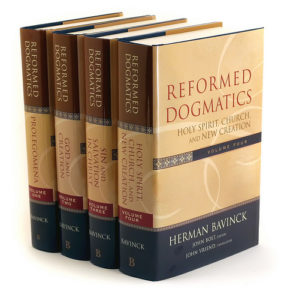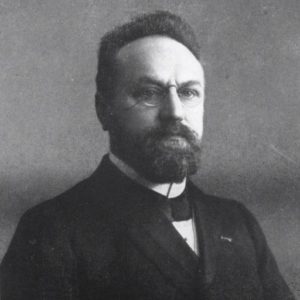 |
 |
Theology Uses Philosophy on its own Terms
[157] Though Christian dogma cannot be explained in terms of Greek philosophy, it also did not come into being apart from it. There is as yet no dogma and theology, strictly speaking, in Scripture. As long as revelation itself was still in progress, it could not become the object of scientific reflection. Inspiration had to be complete before reflection could begin…
Gradually a need arose to think through the ideas of revelation, to link it with other knowledge and to defend it against various forms of attack. For this purpose people needed philosophy. Scientific theology was born with its help. This did not, however, happen accidentally. The church was not the victim of deception. In the formation and development of the dogmas, the church fathers made generous use of philosophy. They did that, however, in the full awareness of and with clear insight into the dangers connected with that enterprise; they were conscious of the grounds on which they did it, and they did it with express recognition of the word of the apostles as the only rule of faith and conduct. For that reason also they did not utilize the whole of Greek philosophy but made a choice; they only utilized the philosophy that was most suited to help them think through and defend the truth of God. They went to work eclectically and did not take over any single philosophical system, be it either from Plato or from Aristotle, but with the aid of Greek philosophy produced a Christian philosophy of their own. Furthermore, they only used that philosophy as a means…
Initially the Reformation assumed a hostile posture toward scholasticism and philosophy. But it soon changed its mind. Because it was not, nor wanted to be, a sect, it could not do without [scientific] theology. Even Luther and Melanchthon, therefore, already resumed the use of philosophy and recognized its usefulness.18 Calvin assumed this high position from the start, saw in philosophy an “outstanding gift of God,” and was followed in this assessment by all Reformed theologians.19 The question here is not whether theology should make use of a specific philosophical system. Christian theology has never taken over any philosophical system without criticism and given it the stamp of approval. Neither Plato’s nor Aristotle’s philosophy has been held to be the true one by any theologian. That theologians nevertheless preferred these two philosophical systems was due to the fact that these systems best lent themselves to the development and defense of the truth. Present also was the idea that the Greeks and Romans had been accorded a special calling and gift for the life of culture. Still to this day, in fact, our whole civilization is built upon that of Greece and Rome. And Christianity has not destroyed but Christianized and thus consecrated those cultures. Still, theology is not in need of a specific philosophy. It is not per se hostile to any philosophical system and does not, a priori and without criticism, give priority to the philosophy of Plato or of Kant, or vice versa.20 But it brings along its own criteria, tests all philosophy by them, and takes over what it deems true and useful. What it needs is philosophy in general. In other words, it arrives at scientific theology only by thinking. The only internal principle of knowledge, therefore, is not faith as such, but believing thought, Christian rationality. Faith is self-conscious and sure. It rests in revelation. It includes cognition, but that cognition is completely practical in nature, a knowing (γιγνωσκειν) in the sense of Holy Scripture. Theology, accordingly, does not arise from believers as such; it is not a product of the church as institution; it does not have its origin in the official ministry Christ has given his church. But believers have still another, fuller life than that which comes to expression in the church as institution. They also live as Christians in the family, the state, and society, and pursue the practice of science and art. Many more gifts than are operative in the offices are granted them, gifts of knowledge and wisdom and prophecy. Among them, too, there are those who feel a strong impulse toward study and knowledge, who have received gifts for apprehending and systematizing the truth of God. Thus theology arises in the church of Christ; its subject is not the institutional church but the church as organism, the body of Christ. It is a product of Christian thinking.
Source: Herman Bavinck, Reformed Dogmatics: Prolegomena vol.1 (Baker, 2003), pp. 607-609.
Herman Bavinck was Professor of Systematic Theology at the Free University of Amsterdam in the early 20th century.
Related Posts
Philosophy and Theology Reading 1/3: “Philosophy and Religion– Seeking and Finding Truth” by John E. Smith.
It seems to me that Bavinck is following his elder colleague, Kuyper, here. Perhaps a little too closely. The consequence is a rather low view of Biblical Theology. Gaffin very helpfully compares this view to that of Geerhardus Vos (who was very close friends of both Kuyper and Bavinck) and his student, John Murray. Gaffin, Richard B. “Systematic Theology and Biblical Theology.” WTJ 38.3 (1976): 281–99. http://beginningwithmoses.org/oldsite/articles/gaffinstandbt.htm